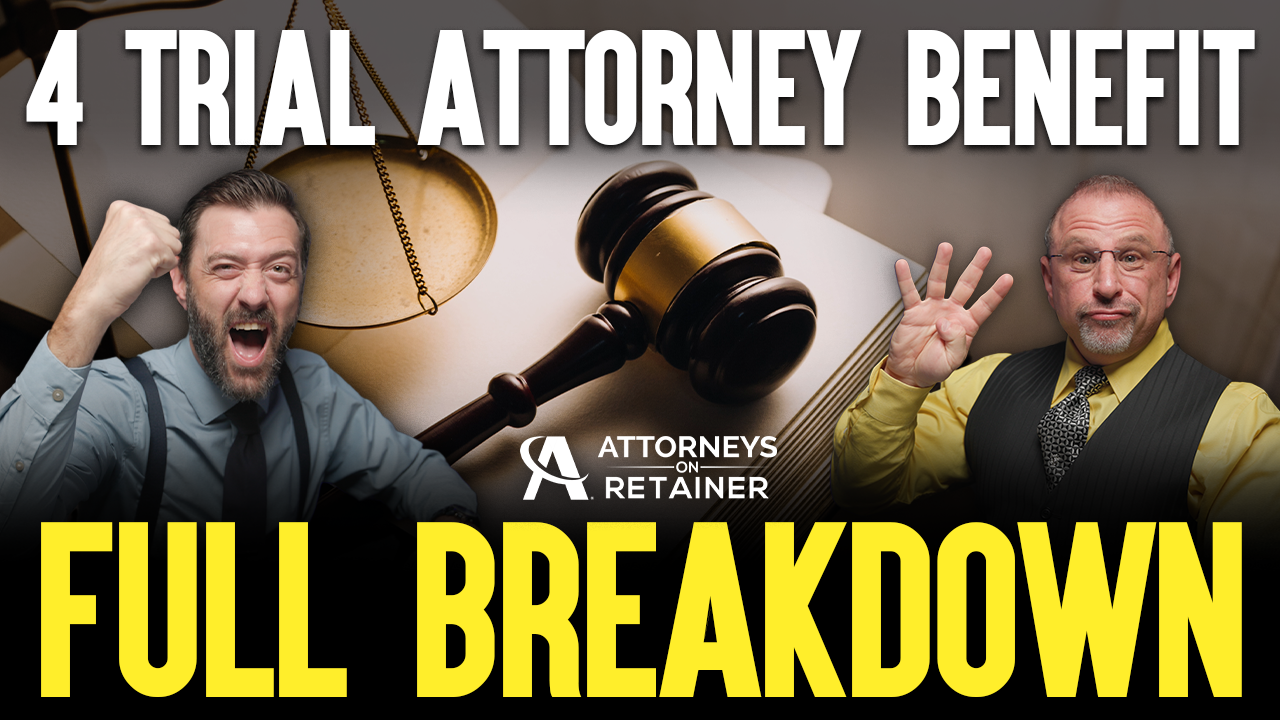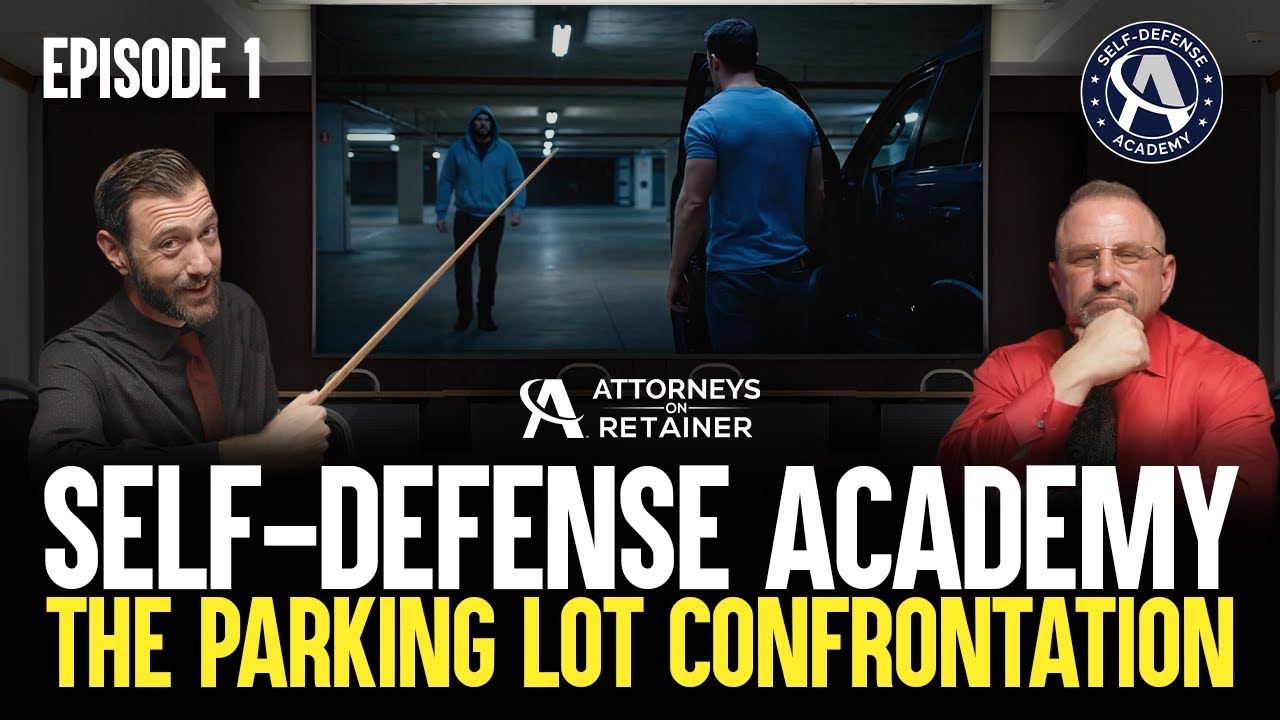Fighting The State Ep.11: Post-Conviction Relief and Appeals
Featuring Attorneys Marc J. Victor and Andy Marcantel
December 6, 2024
The appeals process within the justice system exists to help ensure legal accuracy and fairness. While appeals offer defendants a second opportunity, winning them can be quite challenging. Therefore, it is far more advantageous to succeed during the initial trial. Because trial victories are not always likely or even possible, understanding the appeals process is crucial. Criminal defense attorneys Marc J. Victor and Andrew C. Marcantel break down what happens after a conviction and explain how the appeals process can be used effectively to challenge unjust outcomes.
Defining “Appeal”
An appeal is a legal process in which a higher court reviews the decision of a lower court to determine whether a significant legal error occurred that may have deprived the defendant of a fair trial. Appeals can also challenge unfair sentencing, not just the verdict. For example, sentences may be contested if the court misapplied the law or added unauthorized punishments.
A common misconception about appeals is that defendants often believe that being granted an appeal means they will be found not guilty. Appeals do not re-evaluate guilt or innocence; instead, they focus on whether legal errors were made during the original trial. Unlike trials, where defendants are presumed innocent, appeals operate under the assumption that the conviction is valid unless a legal error can be proven. As a result, appeals are particularly challenging and require demonstrating that something about the legal proceedings was flawed.
“I think it’s also important to point out that appeals are difficult, right, because you’re presumed innocent at the trial level, by the time you’re at the appeal, you’re guilty . . . now you got the burden of proof”
– Attorney Victor
Who Can Appeal?
Every criminal defendant has the constitutional right to appeal. The judicial process typically begins in the trial court, followed by review in intermediate appellate courts, and then a state’s highest court. If further appeal is necessary, cases may proceed to the federal courts. The Supreme Court of the United States, the highest federal court, only becomes potentially involved after all state and federal remedies have been exhausted.
Common Issues That Can Lead to an Appeal
Erroneous Admission or Exclusion of Evidence: If the judge improperly allowed or excluded the evidence during the trial, the defendant can challenge that on appeal.
Jury Instructions: Appeals often focus on how the judge instructed the jury regarding the relevant law. Defendants are generally entitled to jury instructions that align with their defense theory. Instructions that were improperly worded, confusing, or did not adequately reflect the defendant’s theory of defense could give rise to an appeal.
Jury Selection (Voir Dire): A judge failing to strike a biased juror for cause, or forcing the defendant to use their limited peremptory strikes unfairly, can be challenged on appeal.
Juror Misconduct: Jurors engaging in misconduct, such as falling asleep, conducting outside research, or discussing the case inappropriately, can affect the fairness of the trial. These issues can be brought up on appeal.
Insufficient Evidence: The defense can argue that there was not enough evidence to prove guilt beyond a reasonable doubt, and that the verdict should not stand.
Prosecutorial Misconduct: A prosecutor acting unfairly, such as withholding evidence, lying, or making improper arguments, could be grounds for appeal.
Ineffective Assistance of Counsel: A defense attorney’s conduct could give rise to an appeal if it fell well below the standard of care imposed by the bar of that state, and had the attorney’s conduct prejudiced the defendant. In other words, had the attorney done the right thing, it would have made a difference in the outcome of the case.
Appeal Limitations
Appeals are strictly limited to information that was presented or put on record during the trial. However, the exception is when defendants raise claims that require evidence outside the record, such as ineffective assistance based on promises a lawyer made to a client or newly discovered facts, including DNA evidence. This is known as a post-conviction relief proceeding and is different from an appeal.
Due to strict time limits that apply, it is vital that appeals are filed promptly to avoid losing the right. Additionally, most plea deals include a clause that states the defendant agrees to waive their right to appeal. Still, plea agreements are somewhat limited because there are certain fundamental rights related to due process that a defendant cannot waive, such as appeals based on ineffective assistance of counsel or prosecutorial misconduct.
It is important to note that not every trial merits an appeal, especially if existing errors are harmless and not prejudicial. This is known as the Harmless Error Doctrine. Furthermore, if a defense lawyer does not object to errors during trial, the right to appeal against those issues may be lost or may become much more difficult. However, serious errors that affect basic fairness, called “fundamental errors,” can still be reviewed on appeal without an objection.
The attorneys stress the importance of working with attorneys who correctly object at trial to preserve appealable issues. Notably, The Attorneys For Freedom Law Firm is the only firm in the nation solely dedicated to representing self-defense cases. If you’re interested in learning more about how our Attorneys On Retainer program can help you, please call 866-404-5112 or email us.



